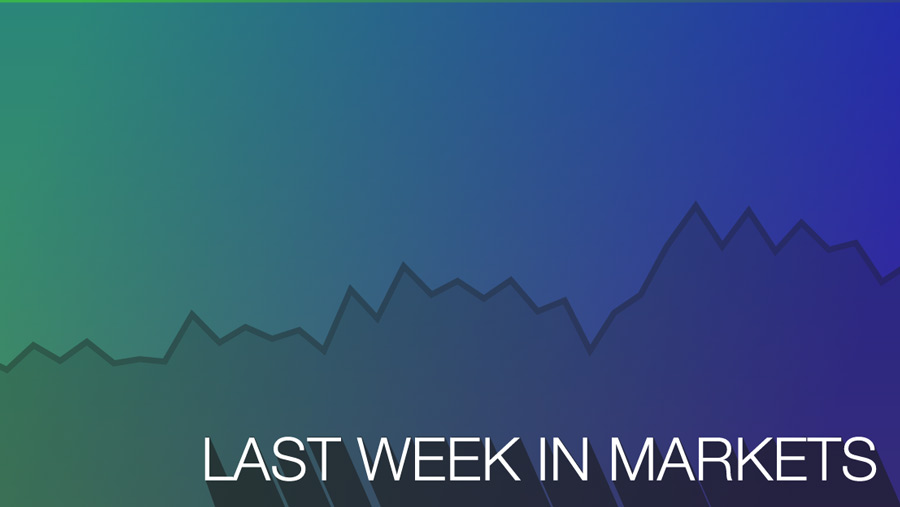Personal Wealth Management / Politics
A Dutch Lesson in Gridlock
As Mark Rutte prepares to say farewell, we look back at underappreciated Dutch gridlock.
Editors’ Note: MarketMinder is politically agnostic. We prefer no politician nor any political party in any country, and we assess developments for their potential economic and market impact only.
It is the end of an era. Mark Rutte, the Netherlands’ longest-serving prime minister (PM), is stepping down as leader of the center-right People’s Party for Freedom and Democracy (VVD)—the largest party in the Dutch parliament—and will not run for another term in the next election following his government’s collapse. He is still in office as caretaker PM for now, but with the vote due by November, the Dutch will have a new premier for the first time in 13 years. We don’t know who that will be, let alone how the next election will shake out—especially since the ascension of the conservative upstart Farmer-Citizen Movement (BBB) party presents a new wildcard. For now, though, a look back at Rutte’s premiership illustrates a few useful lessons for global investors.
Markets Don’t Sweat Ideology Much
Though Rutte has been atop Dutch politics for more than a decade, his four governments weren’t all the same. Here is a snapshot:
- 2010: The VVD and center-right Christian Democratic Appeal (CDA) ruled as a minority government with the support of the nationalist Party for Freedom (PVV)
- 2012: The VVD and center-left Labour Party (PvdA) formed a coalition government
- 2017: The VVD, CDA, centrist Democrats 66 (D66) and center-right Christian Union (CU) joined forces to create a four-party coalition
- 2021: The parties in charge since 2017 agreed to get back together
For those scoring at home, the most ideologically aligned combination fell apart in less than two years; the arrangement between ideological opponents was the most stable and only one to last a full term; and the seemingly rickety, complicated four-party setup repeated itself despite its 2021 collapse over a child benefits scandal.
Now, nations with parliamentary systems often have coalition or minority governments—and given the rise of eurozone populism over the past 12 years, formerly fringe parties have increased their presence in legislatures. That trend has made it even more difficult for a single party to win an outright majority, meaning potential partners must negotiate to arrive at a workable governing agreement. This process takes time and forces compromise—a recipe for gridlock, which tends to dampen sweeping legislative efforts.
As Holland shows, this political system hasn’t proven to be a major negative for stocks. Consider how Dutch stocks have fared relative to broader eurozone markets during Rutte’s governments. (Exhibit 1)
Exhibit 1: How Dutch Stocks Fared Under Rutte

Source: FactSet, as of 7/10/2023. MSCI Netherlands Index and MSCI EMU Index returns with net dividends, in USD, 10/13/2010 – 11/5/2012, 11/4/2012 – 10/26/2017, 10/25/2017 – 1/10/2022, 1/9/2022 – 7/7/2023.
No Government? No Problem
Another characteristic of Rutte’s governments: They took a long time to come together. The 2017 government took 225 days, which, at the time, was the longest in Holland’s history. However, Rutte’s fourth government topped that, requiring 299 days before being sworn into office.
These long periods without a government didn’t worry stocks, though. In 2017, Dutch stocks rose 20.4% between election day in March and the government’s formation in October—just a tad behind eurozone markets’ 21.6% over the same period.[i] During the record-long stretch of no government from 2021 – 2022, Holland (11.8%) was close to doubling the eurozone’s return (6.8%).[ii]
We think this demonstrates how no government—which usually means the incumbent stays in place to keep the lights on as Rutte is doing now—isn’t problematic for markets. This, too, is a form of gridlock, as caretaker governments have no mandate for big legislation, which stocks recognize. In our view, this is useful to keep in mind since the latest polls show Dutch politics are even more fragmented today. The BBB’s emergence will likely complicate coalition talks following autumn’s election, as the populist party looks poised to have a prominent seat at the table.
The Benefits of Gridlock
In our view, stocks generally prefer political gridlock because it decreases the likelihood of major legislative change, which creates winners and losers. As prospect theory teaches, the latter tend to feel the losses over twice as hard as the winners relish their gains—so that net negativity can weigh on sentiment (and stocks). Gridlock lessens this risk.
Now, we aren’t saying gridlock is always and everywhere a positive. Some nations could benefit from structural reforms (e.g., reducing red tape), and gridlock makes it tougher to implement those changes. But since gridlock keeps the political status quo largely in place, businesses can plan and invest accordingly—and forward-looking stocks, which loathe uncertainty, can move on and focus elsewhere.
In Holland’s case, a persistently gridlocked Dutch government freed the country’s stocks to move with regional and global forces. For example, eurozone-specific factors (e.g., 2010 – 2012’s sovereign debt crisis and regional recession) weighed on Dutch markets at times, but Holland outperformed the eurozone as part of stronger Northern Europe. More importantly, Tech’s global leadership for most of Rutte’s time in office was a boon for the MSCI Netherlands, as one semiconductor stock comprises over 40% of the index.[iii] To us, the Netherlands is a clear-cut example of how global factors trump local ones—worth remembering for globally minded investors.
[i] Source: FactSet, as of 7/11/2023. MSCI Netherlands Index and MSCI European Monetary Union (EMU) Index returns with net dividends, in USD, 3/14/2017 – 10/26/2017.
[ii] Ibid. MSCI Netherlands Index and MSCI European Monetary Union (EMU) Index returns with net dividends, in USD, 3/14/2021 – 1/10/2022.
[iii] Ibid. Statement based on MSCI Netherlands Index, as of 7/10/2023.
If you would like to contact the editors responsible for this article, please message MarketMinder directly.
*The content contained in this article represents only the opinions and viewpoints of the Fisher Investments editorial staff.
Get a weekly roundup of our market insights
Sign up for our weekly e-mail newsletter.

See Our Investment Guides
The world of investing can seem like a giant maze. Fisher Investments has developed several informational and educational guides tackling a variety of investing topics.





